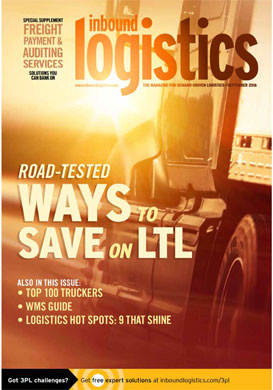
by logisticsplus | Sep 26, 2016 | News
Logistics Plus recently participated in an interview with Inbound Logistics magazine to provide shippers with LTL shipping advice. The article, written by Sandra Beckwith, provides shippers with tips on how best to save on less-than-truckload (LTL) freight shipping. You can read an online version of the article on the Inbound Logistics website using the link below.
18 Sure-Fire Ways to Save on LTL Shipments
A PDF excerpt of the article can also be downloaded and viewed by clicking the image below.

Shippers looking to work with Logistics Plus to save money on LTL shipping by implementing any of these 18 tips can click the button below to get started.

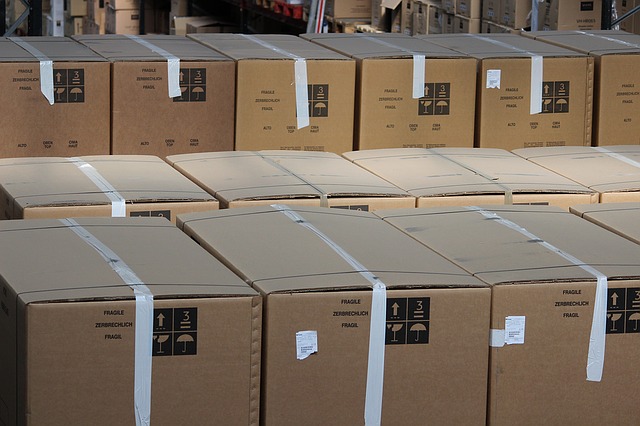
by logisticsplus | Sep 16, 2016 | News
 What is volume LTL shipping? In general industry terms, a volume shipment (sometimes referred to as a partial truckload) typically weighs more than 5,000 pounds, is six (6) pallets or more or it takes up 12 to 32 linear feet of trailer space. As with most consumer or business purchases, buying the things you need in larger quantities is a simple way to save money. So, just as you’d expect to get a better deal on that case of bottled water at your local warehouse store, the same is true for freight. Ship a larger shipment and spend less than shipping multiple, smaller shipments. Unlike standard LTL shipments, where the rates and discounts are already pre-established, volume LTL shipments are generally “spot quoted” and can often help a carrier fill density in a “backhaul” lane where they need the additional business. This will generally result in lower freight charges than what might have been otherwise charged using standard LTL rates.
What is volume LTL shipping? In general industry terms, a volume shipment (sometimes referred to as a partial truckload) typically weighs more than 5,000 pounds, is six (6) pallets or more or it takes up 12 to 32 linear feet of trailer space. As with most consumer or business purchases, buying the things you need in larger quantities is a simple way to save money. So, just as you’d expect to get a better deal on that case of bottled water at your local warehouse store, the same is true for freight. Ship a larger shipment and spend less than shipping multiple, smaller shipments. Unlike standard LTL shipments, where the rates and discounts are already pre-established, volume LTL shipments are generally “spot quoted” and can often help a carrier fill density in a “backhaul” lane where they need the additional business. This will generally result in lower freight charges than what might have been otherwise charged using standard LTL rates.
What information will you need to provide to get a volume LTL shipping rate? Like any standard LTL shipment, you’ll need the origin and destination zip codes, total weight, and freight classification (or a detailed description of your commodity). You’ll also need to provide the pallet count, shipment dimensions, and the date you’re planning on shipping. Quick and competitive access to carriers’ volume LTL rates are one of the many reasons to use an experienced freight management company (like Logistics Plus). They can save you money on your volume LTL shipping because they have ready access to many carriers that will provide the best volume rates, and they often know what type of freight carriers are looking to secure. Keep in mind, because volume quotes are spot-quoted, they are not automatic. They can often take an hour or so to obtain, so plan ahead.
Don’t be shy in requesting volume LTL and partial truckload shipments when you have the opportunity – they can help you save on your overall shipping costs! If you’ve got a shipment over 5,000 pounds or more than six pallet positions, click the button below and let the Logistics Plus North American freight experts go to work finding the best rates for you!

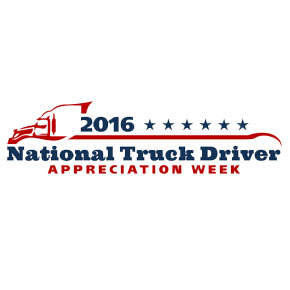
by logisticsplus | Sep 13, 2016 | News
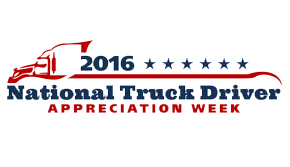 This week is National Truck Driver Appreciation Week (NTDAW) – a time when America honors all professional truck drivers for their hard work and commitment in tackling one of our economy’s most demanding and important jobs.
This week is National Truck Driver Appreciation Week (NTDAW) – a time when America honors all professional truck drivers for their hard work and commitment in tackling one of our economy’s most demanding and important jobs.
Logistics Plus was founded by a truck driver; and so our 400+ employees are especially proud to extend our collective thanks to all truck drivers across America (and around the world, for that matter). These 3.5 million professional men and women not only deliver our goods safely, securely and on time, they also keep our highways safe.
In honor of NTDAW, here are some interesting facts about truck drivers and the trucking industry published by the American Trucking Association (ATA):
- Professional truck drivers drove over 279 billion miles in 2014, more than double 25 years ago. Those miles accounted for 14.2% of all motor vehicle miles and 29.8% of all truck miles.
- The trucking industry paid $39.9 billion in federal and state highway taxes in 2014, and represented 12.1 percent of vehicles on the road. The trucking industry paid $18.4 billion in federal highway-user taxes and $21.6 billion in state highway-user taxes in 2014.
- The trucking industry consumed 54.3 billion gallons of diesel fuel and gasoline in 2015. Based on consumption and price, ATA reported that motor carriers spent $142.9 billion in 2015.
- The federal fuel tax for diesel in 2015 is 24.4 cents per gallon; the average state tax for diesel fuel was 27.4 cents per gallon.
- There are 3.63 million class 8 trucks on the road in the United States and 11.7 million commercial trailers were registered in 2015.
- There are 3.5 million truck drivers in the United States. Total industry employment is 7.3 million or one out of every 16 people working in the United States.
- There are 586,014 for-hire carriers and 747,791 private carriers in the United States; 97.3 percent of them have fewer than 20 trucks and 90.8 are operating six trucks or less.
- In 2015, the trucking industry hauled 10.49 billion tons of freight, or 70.1 percent of total U.S. freight tonnage. Rail was the next busiest mode, moving 13.8 percent of the nation’s freight tonnage.
- In 2015, the trucking industry was an astounding $726.48 billion industry, representing 81.5 percent of the nation’s freight bill.
- More than 80 percent of U.S. communities depend solely on trucking for delivery of their goods and commodities.
- A new truck produces one-tenth the fine particulate emissions and smog-forming NOx emissions as a similar truck manufactured just seven years ago.
- Fine particulate emissions from on-road diesel trucks have been cut by more than half over the past decade.
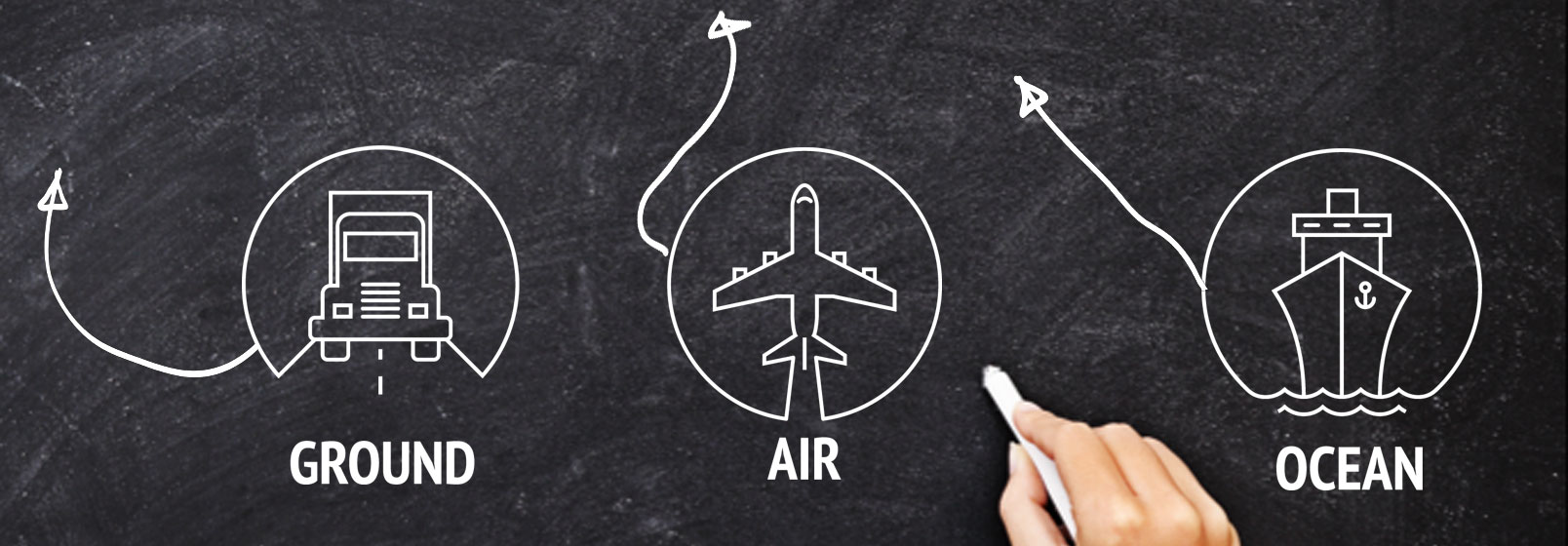
by logisticsplus | Sep 7, 2016 | News
 Choosing the right mode for freight transportation is a very important part of any logistics playbook. You will ship your product by either ground, air, ocean or rail transport. The factors that come into play in mode selection include the following:
Choosing the right mode for freight transportation is a very important part of any logistics playbook. You will ship your product by either ground, air, ocean or rail transport. The factors that come into play in mode selection include the following:
- Availability – is equipment and capacity readily available?
- Speed – is the transit time for final delivery acceptable?
- Cost – is the freight cost acceptable for your situation?
- Reliability – is your delivery schedule flexible or rigid?
- Safety – is your product susceptible to theft or damage?
As you consider which mode to use, here are some of the advantages and disadvantages that come into play:
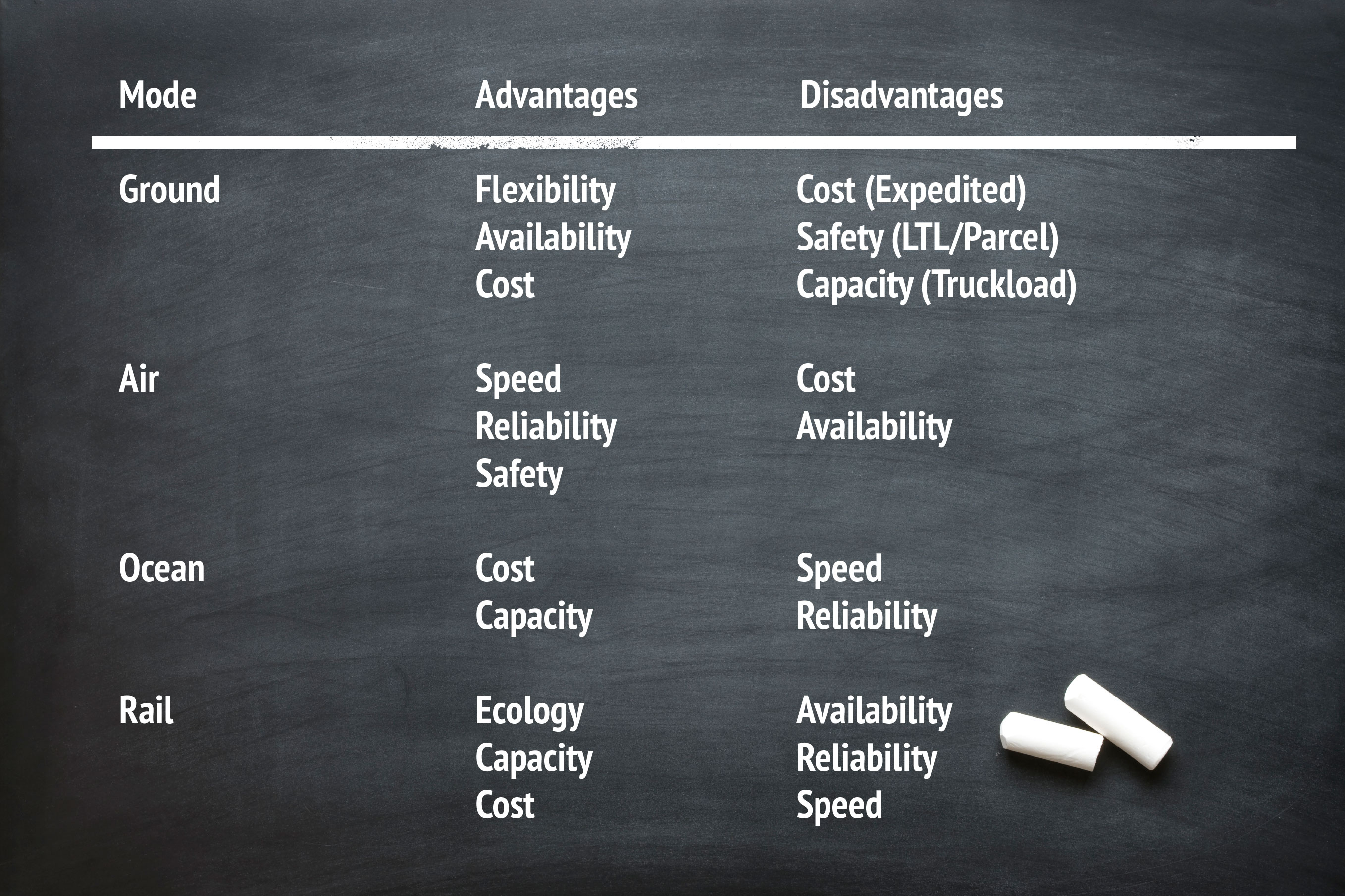
With the fall football season just around the corner, you should know that the Logistics Plus team is here to help you with your logistics playbook. We have the services and solutions to help you run any logistics play your supply chain demands. If you’re looking to score freight savings and earn extra points with your customers and vendors, here are a few common plays we can help you successfully execute (just click the play you wish to run to get started):
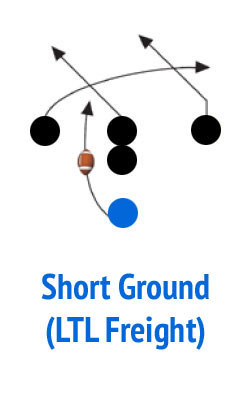
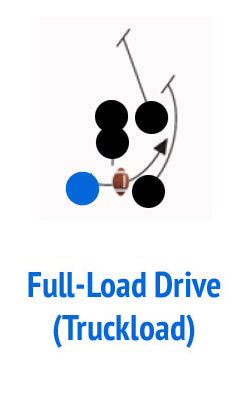
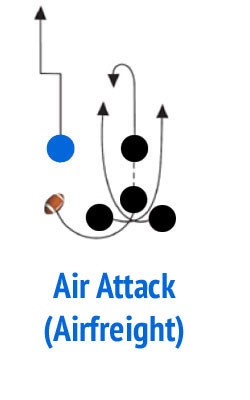
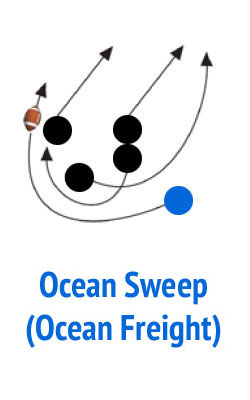
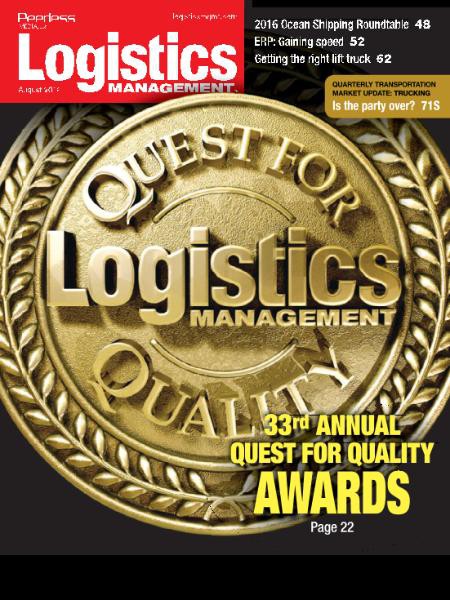
by logisticsplus | Aug 9, 2016 | News
 Last week Logistics Management magazine unveiled the results of its 33rd Annual Quest for Quality Awards contest. To determine who wins the vote, Logistics Management readers evaluate companies in all modes and service disciplines, choosing the top performers in categories including motor carriers, railroad and intermodal services, ocean carriers, airlines, freight forwarders, ports, and third-party/contract logistics services.
Last week Logistics Management magazine unveiled the results of its 33rd Annual Quest for Quality Awards contest. To determine who wins the vote, Logistics Management readers evaluate companies in all modes and service disciplines, choosing the top performers in categories including motor carriers, railroad and intermodal services, ocean carriers, airlines, freight forwarders, ports, and third-party/contract logistics services.
Once again, many of our core national and regional less-than-truckload (LTL) freight carriers were on the ballot and many also won awards. We’d like to congratulate the following Logistics Plus LTL freight carriers for winning Quest for Quality awards this year:
- FedEx Freight (National and Multiregional LTL categories)
- XPO Logistics (National and Multiregional LTL categories)
- UPS Freight (National LTL category)
- A. Duie Pyle (Northeast/Mid-Atlanta LTL and Expedited categories)
- Pitt Ohio (Northeast/Mid-Atlanta LTL and Expedited categories)
- Ward Transport (Northeast/Mid-Atlanta LTL category)
- New Penn (Northeast/Mid-Atlanta LTL category)
- Southeastern Freight Lines (South/South Central LTL category)
- Dayton Freight (Midwest/North Central LTL category)
- Holland (Midwest/North Central LTL category)
Competitive rates and services for all of the top LTL carriers are available to users of the Logistics Plus eShipPlus transportation management system.
Additionally, there were a number of truckload, expedited, ocean and air freight carriers that Logistics Plus has worked with in the past year that won Quest for Quality awards, including Miller Transporters, Prime, Ruan, Landstar, J.B. Hunt, Transport America, Panther Premium Logistics, and FedEx Custom Critical (truckload and expedited motor carriers); Matson, MSC, NYK Line, Maersk Line, OOCL, AAPL, Hapag-Lloyd, and Hyundai Merchant Marine (ocean carriers); and Cargolux, American Airlines, Cathay Pacific, Korean Air, Lufthansa, Emirates SkyCargo, EVA, and FedEx Express (airfreight carriers).
Shippers looking for competitive rates with the top freight carriers in the industry can click the button below to request a risk-free quote.















